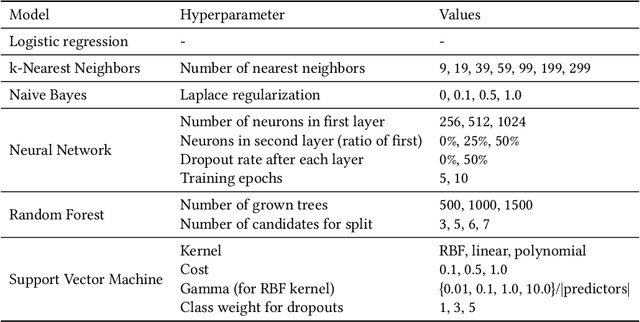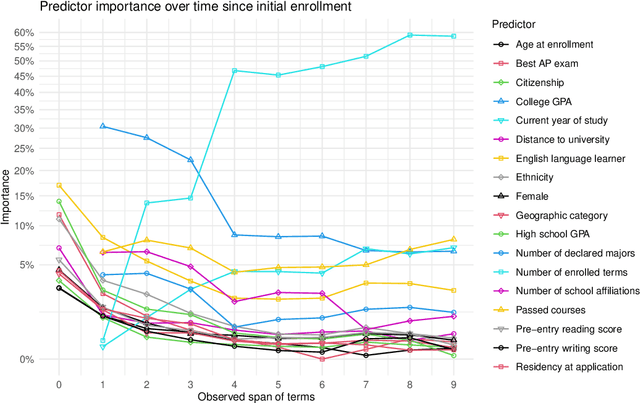Dominik Glandorf
SCRIBE: Structured Chain Reasoning for Interactive Behaviour Explanations using Tool Calling
Oct 30, 2025Abstract:Language models can be used to provide interactive, personalized student feedback in educational settings. However, real-world deployment faces three key challenges: privacy concerns, limited computational resources, and the need for pedagogically valid responses. These constraints require small, open-source models that can run locally and reliably ground their outputs in correct information. We introduce SCRIBE, a framework for multi-hop, tool-augmented reasoning designed to generate valid responses to student questions about feedback reports. SCRIBE combines domain-specific tools with a self-reflective inference pipeline that supports iterative reasoning, tool use, and error recovery. We distil these capabilities into 3B and 8B models via two-stage LoRA fine-tuning on synthetic GPT-4o-generated data. Evaluation with a human-aligned GPT-Judge and a user study with 108 students shows that 8B-SCRIBE models achieve comparable or superior quality to much larger models in key dimensions such as relevance and actionability, while being perceived on par with GPT-4o and Llama-3.3 70B by students. These findings demonstrate the viability of SCRIBE for low-resource, privacy-sensitive educational applications.
Grammar Control in Dialogue Response Generation for Language Learning Chatbots
Feb 11, 2025Abstract:Chatbots based on large language models offer cheap conversation practice opportunities for language learners. However, they are hard to control for linguistic forms that correspond to learners' current needs, such as grammar. We control grammar in chatbot conversation practice by grounding a dialogue response generation model in a pedagogical repository of grammar skills. We also explore how this control helps learners to produce specific grammar. We comprehensively evaluate prompting, fine-tuning, and decoding strategies for grammar-controlled dialogue response generation. Strategically decoding Llama3 outperforms GPT-3.5 when tolerating minor response quality losses. Our simulation predicts grammar-controlled responses to support grammar acquisition adapted to learner proficiency. Existing language learning chatbots and research on second language acquisition benefit from these affordances. Code available on GitHub.
Temporal and Between-Group Variability in College Dropout Prediction
Jan 12, 2024



Abstract:Large-scale administrative data is a common input in early warning systems for college dropout in higher education. Still, the terminology and methodology vary significantly across existing studies, and the implications of different modeling decisions are not fully understood. This study provides a systematic evaluation of contributing factors and predictive performance of machine learning models over time and across different student groups. Drawing on twelve years of administrative data at a large public university in the US, we find that dropout prediction at the end of the second year has a 20% higher AUC than at the time of enrollment in a Random Forest model. Also, most predictive factors at the time of enrollment, including demographics and high school performance, are quickly superseded in predictive importance by college performance and in later stages by enrollment behavior. Regarding variability across student groups, college GPA has more predictive value for students from traditionally disadvantaged backgrounds than their peers. These results can help researchers and administrators understand the comparative value of different data sources when building early warning systems and optimizing decisions under specific policy goals.
 Add to Chrome
Add to Chrome Add to Firefox
Add to Firefox Add to Edge
Add to Edge